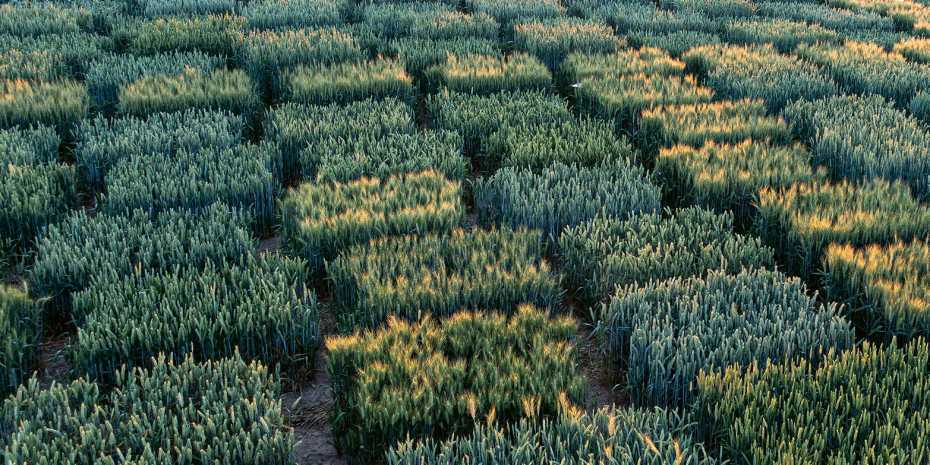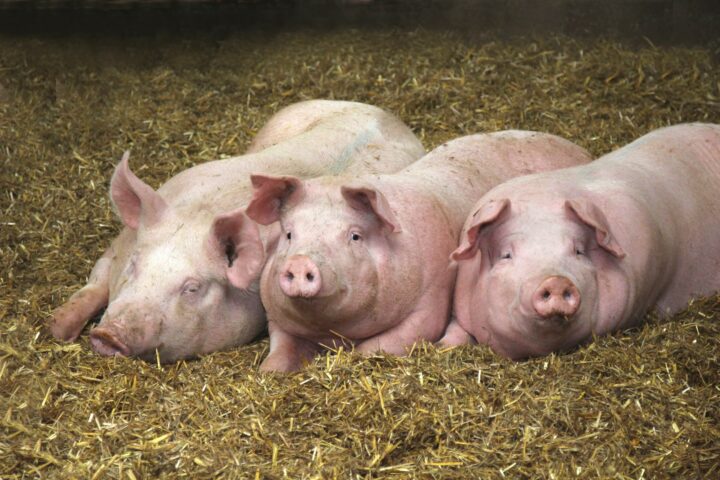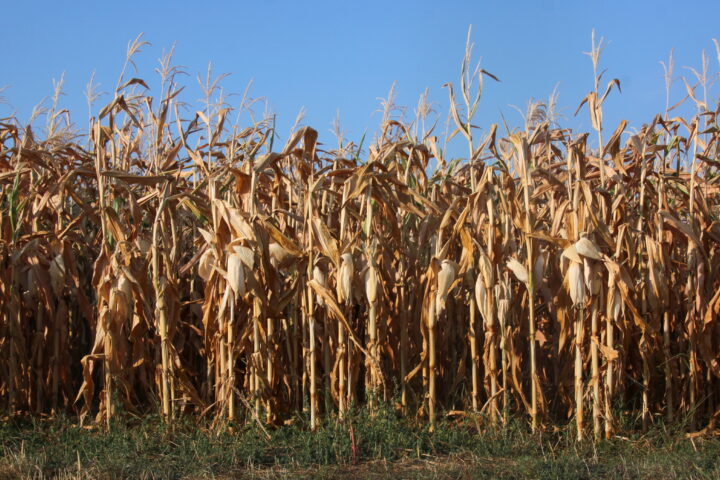
Optimising nature
With the help of molecular genetic methods, the crops of the future, such as rice enriched with multiple nutrients, are being cultivated today. Researchers argue that the risks of new plant varieties should be evaluated based not on the method by which they are bred, but on their characteristics.
Tuesday, October 5, 2021
Quick facts:
- Throughout history, people have cross-bred and cultivated particularly productive plants. Only very few of the foods we eat have developed “naturally.”
- Because of climate change, cultivation conditions are constantly changing. In the future, too, too, we will have to cultivate new, robust plant varieties.
- New breeding methods, such as gene editing, can help us keep pace with climate change.

When it comes to food, many people yearn for unspoiled nature. Anything that is natural is considered good and healthy. Eco-marketing promotes an idealized image of an agricultural system that produces natural food, using natural methods. Tools like genetic engineering are frowned upon; people feel that they artificially interfere with nature. But this romanticized conception of “natural” is deceptive. Very little of what we eat today developed naturally. “For 12,000 years, people have selected plants based on their characteristics, in an effort to make them edible and more productive,” says Bruno Studer, professor of Molecular Plant Breeding at ETH Zurich. Agriculture has developed through artificial selection.
Adapted crops
The agricultural sector is currently under pressure to make production more environmentally friendly. Above all, it is supposed to reduce the use of pesticides. It also needs to produce stable, high-quality yields in a climate that is becoming increasingly warm and dry. This requires varieties that are resistant to disease and able to thrive in a changing climate.
“We need to make sure that our crops are genetically suited to meet tomorrow’s demands,” says Studer. However, traditional crossbreeding can be very time-intensive. Studer and his team are developing molecular genetic methods for making the breeding process more efficient. For example, genetic markers make it possible to identify plants that have the desired characteristics more quickly. The group is working closely with the Agroscope research center, with support from the agricultural cooperative Fenaco.
Precise plant breeding
For nearly ten years, science has had a powerful tool to use in breeding: a new kind of genetic engineering based on the CRISPR/Cas “gene scissors.” Gene editing is much more precise than the genetic engineering of the 2000s, which sometimes resulted in the uncontrolled addition of foreign DNA to a plant’s genetic material. Switzerland’s Gene Technology Act defines genetically modified organisms as organisms in which the genetic material has been altered in a way that does not occur under natural conditions by crossing or natural recombination. A moratorium on the cultivation of such plants has been in place since 2005. In contrast, gene editing allows for precise modifications of genetic material. Individual genes can be added, rewritten or switched off. For example, by inserting a resistance gene from a related wild variety or silencing a gene that suppresses a plant’s defenses against pests, it is possible to produce resistant plants without the use of foreign genetic material.
The crucial question
Since a modification of genetic material that is achieved using “gene scissors” is often indistinguishable from mutations that occur naturally or are produced using traditional means, the question is whether gene-edited plants should be considered genetically modified organisms. “This is currently the case in Switzerland and Europe – the cultivation of gene-edited plants is not permitted. If the same mutation occurs naturally or as the result of traditional breeding, however, the identical variety is not subject to strict regulations,” Studer explains. Paradoxically, this is true even if the genetic material is chemically treated or is irradiated. “From the perspective of breeding research, this makes no sense – plants are not ‘more artificial’ or ‘more dangerous’ because they have been developed using precise genetic engineering,” says Studer. It would be more useful to assess the risk associated with new plant varieties by looking not at the method used to produce them, but at their characteristics.
Multi-nutrient rice
This opinion is shared by Navreet Bhullar, a biotechnologist and lecturer at the Institute of Molecular Plant Biology. Bhullar is improving food crops by increasing their micronutrient content. Worldwide, more than 2 billion people suffer from mineral and vitamin deficiencies because their basic source of nutrition, polished rice, contains almost no essential trace elements, such as iron. Bhullar’s team has developed transgenetic rice varieties that are not only enriched with iron and zinc, but also produce beta carotene as a precursor to vitamin A. With its multi-nutrient rice, her research group is a leader in the field. “We developed this product using traditional genetic engineering, since it cannot be done through conventional breeding,” Bhullar explains. She has not yet worked with CRISPR/Cas. However, she believes that combining such characteristics such as drought tolerance and pest resistance with micronutrients has great potential for sustainable agriculture, which can also help to solve the world’s food problems.
The moratorium on genetic engineering expires at the end of the year. The Federal Council wants to extend it for another four years and include gene editing under the strict cultivation ban. So far the idea that genetic engineering poses biological risks has not proved to be true, Bhullar and Studer point out. The two researchers agree: “Switzerland should not close the door to these new breeding methods.”
Bruno Studer is a professor of Molecular Plant Breeding and conducts research on molecular-biological methods aimed at making the breeding process more efficient.
Navreet Bhullar is a lecturer at the Institute of Molecular Plant Biology. She is developing new rice and wheat varieties enriched with micronutrients such as iron and zinc.
Sources
Kindly note:
We, a non-native editorial team value clear and faultless communication. At times we have to prioritize speed over perfection, utilizing tools, that are still learning.
We are deepL sorry for any observed stylistic or spelling errors.
Related articles

What’s Really in Your Shopping Basket
Genetic engineering in our shopping basket? Yes – and much more often than we think. Whether it’s pasta, bread or vegetables: many of the everyday products we consume come from mutation breeding, which involves altering the genome and is considered safe. It’s high time to debunk the common myths.

Genomic breeding methods are not given a chance to prove themselves
Modern genomic breeding methods are legally classified as genetic engineering – and are therefore still effectively blocked. Yet we have been eating genetically modified plants for decades, just under the label of “classical mutagenesis.” The new, more precise techniques are regulated more strictly than the old ones, even though they are considered safer from a scientific perspective. A contradiction that urgently needs to be corrected. The EU is setting a good example.

No Pig Business: Why Testicle-Free Boars Are a Clear Win for Animal Welfare
New breeding methods are opening up new possibilities in both plant and animal breeding. They allow targeted genetic changes that can make animals more resilient, adaptable, and healthier.

Stagnation instead of progress: Switzerland risks falling behind in new breeding techniques
An overview article in Schweizer Bauer shows how much the new breeding methods are preoccupying farming circles. Once the consultation process on the federal law has been completed, a bill is expected – then it will become clear whether there is actually the political will to approve it.

